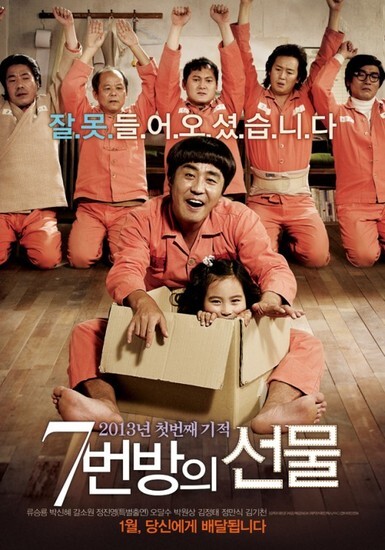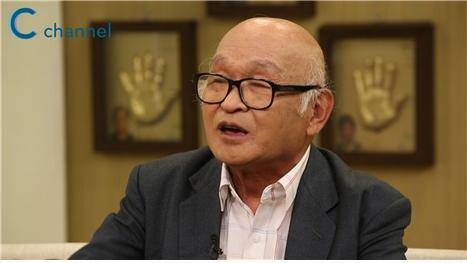hankyoreh
Links to other country sites 다른 나라 사이트 링크
State’s responsibility not recognized in case of torture and forced confession

A court ruled recently to order the payment of over US$2 million in reparations to minister Jeong Won-seop, 82, by police officers responsible for torturing him into a false confession to rape and murder. But the police who tortured him and forged evidence over four decades ago were not the only ones dismayed at the decision. Jeong, the reported inspiration for the protagonist in the 2013 film “Miracle in Cell No. 7,” also hinted that he felt cheated by the failure once again to recognize the state as liable for reparations.
“A law was enacted for ‘truth and reconciliation.’ Doesn’t the state have a responsibility to share the truth?” Jeong said.
Judge Im Tae-hyeok of the 45th civil affairs division of Seoul Central District Court announced on Nov. 24 that he had ruled in favor of the plaintiffs in case filed by Jeong and his family seeking damages from the police officers who tortured him and forged evidence, the prosecutors who indicted him, the judge in his first trial, and the state. With the decision, three police officers, including one surnamed Jin, and their surviving family members were ordered to pay Jeong 2,388,000,000 won (US$2.02 million). But the prosecutors, judge, and state were not found liable for reparations.
In 1972, Jeong was running a comic book store in Chuncheon, Gangwon Province, when he suddenly found himself accused of sexually assaulting and murdering the ten-year-old daughter of the local train station police box chief. He was tortured relentlessly into making a false confession, and spent the next 15 years behind bars. Only in 2007, when he was 70 years old, was his name cleared by the Truth and Reconciliation Commission and a retrial court. In 2013, Seoul Central District Court found the state responsible for illegal actions in his treatment and ordered it to pay reparations of 2.6 billion won (US$2.2 million). Jeong felt at the time like he had gotten back at least some of the time he had lost.

But there was a problem: the statute of limitations. In late 2013, the Supreme Court announced the statute of limitations period as being six months from the date criminal compensation was officially determined. The system is one in which rights are limited if not exercised within a certain period of time. Having filed suit six months and ten days from his determination date, Jeong received none of the compensation. In an attempt to bring the facts to light, he filed suit again, this time against the state - along with the police who tortured him, the prosecutor who indicted him, and the judge who convicted him.
For a legal basis, Jeong cited the Framework Act on Settling the Past History for Truth and Reconciliation. Article 36-1 of that act states that the government “must take appropriate measures to [make amends for] victimization and restore the reputation of victims as facts are determined.” His suit was an attempt to hold the state responsible for remaining silent to his suffering and taking no action to make amends for his victimization even after the truth was discovered. But the court rejected his argument, arguing that the “state’s obligation according to the Truth and Reconciliation Act is abstract and cannot be exercised if not made concrete through legislation.”
Jeong has no intention of giving up. His legal representative, attorney Ji Yeong-jun of the law firm Justice, plans to submit a Constitutional appeal next week.
“The state has not taken sufficient action to make amends for [Jeong’s] victimization and restore his reputation according to the Truth and Reconciliation Act. We must not have a repeat of it deferring its responsibilities to individual victims of state violence,” Ji said.
In May, judge Kim Heung-jun of the 10th administrative division at Seoul High Court dismissed a suit by Jeong requesting reconciliation measures from the state. At the same time, he argued it was “not desirable in light of the purpose of the Truth and Reconciliation Act for the state to allow over eight years to pass since the Truth and Conciliation Committee’s investigation determination without taking the appropriate measures needed to restore [Jeong’s] reputation.” It’s a position that the octogenarian Jeong plans to use as a reference in continuing his now nearly half-century-long journey toward actual truth and reconciliation.
By Hyun So-eun, staff reporter
Please direct questions or comments to [english@hani.co.kr]

Editorial・opinion
![[Column] Has Korea, too, crossed the Rubicon on China? [Column] Has Korea, too, crossed the Rubicon on China?](https://flexible.img.hani.co.kr/flexible/normal/500/300/imgdb/original/2024/0419/9317135153409185.jpg) [Column] Has Korea, too, crossed the Rubicon on China?
[Column] Has Korea, too, crossed the Rubicon on China?![[Correspondent’s column] In Japan’s alliance with US, echoes of its past alliances with UK [Correspondent’s column] In Japan’s alliance with US, echoes of its past alliances with UK](https://flexible.img.hani.co.kr/flexible/normal/500/300/imgdb/original/2024/0419/2317135166563519.jpg) [Correspondent’s column] In Japan’s alliance with US, echoes of its past alliances with UK
[Correspondent’s column] In Japan’s alliance with US, echoes of its past alliances with UK- [Editorial] Does Yoon think the Korean public is wrong?
- [Editorial] As it bolsters its alliance with US, Japan must be accountable for past
- [Guest essay] Amending the Constitution is Yoon’s key to leaving office in public’s good graces
- [Editorial] 10 years on, lessons of Sewol tragedy must never be forgotten
- [Column] A death blow to Korea’s prosecutor politics
- [Correspondent’s column] The US and the end of Japanese pacifism
- [Guest essay] How Korea turned its trainee doctors into monsters
- [Guest essay] As someone who helped forge Seoul-Moscow ties, their status today troubles me
Most viewed articles
- 1[Column] The clock is ticking for Korea’s first lady
- 2Hong Se-hwa, voice for tolerance whose memoir of exile touched a chord, dies at 76
- 3[Column] Has Korea, too, crossed the Rubicon on China?
- 4After 2 months of delayed, denied medical care, Koreans worry worst may be yet to come
- 5[Correspondent’s column] In Japan’s alliance with US, echoes of its past alliances with UK
- 6All eyes on Xiaomi after it pulls off EV that Apple couldn’t
- 7[Photo] Smile ambassador, you’re on camera
- 8US overtakes China as Korea’s top export market, prompting trade sanction jitters
- 9S. Korea “monitoring developments” after report of secret Chinese police station in Seoul
- 1075% of younger S. Koreans want to leave country